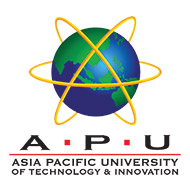
Bachelor of Computer Engineering with Honours
Offered by: Asia Pacific University of Technology & Innovation (APU)
Ask About This Course
| Exam Body | APU Malaysia Degree | ||||||||||||||||||||
|---|---|---|---|---|---|---|---|---|---|---|---|---|---|---|---|---|---|---|---|---|---|
| Course Duration | 4 Years (8 Semesters) | ||||||||||||||||||||
| Part Time/Full Time | Full Time | ||||||||||||||||||||
| Fees | RM 107,400 | ||||||||||||||||||||
| Fees (International Student) | RM 122,000 | ||||||||||||||||||||
| Faculty | School of Engineering | ||||||||||||||||||||
| Conducted entirely in Malaysia | Yes | ||||||||||||||||||||
| Awarding Country | Malaysia | ||||||||||||||||||||
| Level of Study | Bachelor's Degree Level | ||||||||||||||||||||
| Field of Study | Engineering & Engineering Trades | ||||||||||||||||||||
| Achievement | APU-DMU Dual Degree Scheme | ||||||||||||||||||||
| Course Description | This programme is specifically designed to provide:
Programmes Educational Objectives:Graduates of APU Bachelor of Engineering in their respective programs are expected within five years of graduation to attain the following programme educational objectives:
Computer engineering has emerged as a driving force addressing numerous global demands like smart grids, cognitive buildings, energy management and the likes. Operating platforms for more and more applications have been migrating to the cloud in recent days. Bridging the gap between hardware and software, are Computer Engineers, advancing computer technology towards transforming more and more of these cyber dreams into realities. Some of the areas covered in this major are:
Programme Outcomes: The students, upon completion of their study, should attain the following outcomes:
This programme is accredited by the Board of Engineers Malaysia (BEM). | ||||||||||||||||||||
| Curriculum | Degree Level 1 Students will understand the basic principles of engineering in the areas of Circuit Analysis, Instrumentation & Measurement, C Programming, Industry 4.0, Engineering Materials, Software Development and Networking. Other modules aim to provide the basic demands of employers, as well as thorough grounding in principles of IT and management. Important and relevant skills for managing activities and for their own independent learning are also introduced.
Degree Level 2 Here, students start specialising in modules that develop the necessary underlying knowledge and skills in Computer Engineering with modules such as Electromagnetic Field Theory, Engineering Software & Applications, Analogue Electronics, Digital Electronics, Signals & Linear Systems, Introduction to Electrical Systems, Object Oriented Development with Java, Programming Concepts in C++ and Human Computer Interaction. Engineering Mathematics is provided for better understanding of the engineering modules.
Degree Level 3 Specialised knowledge and skills in the areas of Control Engineering, Computer Architecture, Communication Engineering Principles, VLSI Design, Numerical Methods & Statistics, Microprocessor Systems and Embedded Software, Digital Signal Processing, Modern Communication Systems and Machine Vision & Intelligence are the critical focus of this level. There is further development of the ability to apply relevant engineering skills with strong critical thinking and analysis. Independent learning continues in all modules.
Internship (16 weeks) Students will undertake an Internship/Industrial Training for a minimum period of 16 weeks to prepare them for a smooth transition from the classroom to the working environment.
Degree Level 4 The final year Engineering modules provide the necessary industry application and technological skills which become very useful for employment upon graduation. Students’ personal and professional development, technical capability and understanding of how to innovate, generate and manage the creation of new ideas will be enhanced. Students will deliver several Engineering Projects where they will demonstrate higher level critical thinking, analysis and solutions development skills which will enhance their employability.
MQA Compulsory Subjects *
(*All students are required to successfully complete these modules as stipulated by the Malaysian Qualification Agency) | ||||||||||||||||||||
| Entry Requirements | DIRECT ENTRY TO LEVEL 1 OF THE DEGREE: STPM • 2 Passes in STPM with a minimum Grade C (GP 2.0) in Mathematics and Physics (or Chemistry), and a Credit in Mathematics and Physics (or Chemistry) at SPM Level or its equivalent.
A-LEVEL • 2 Passes in A-Level including Mathematics and Physics (or Chemistry), and a Credit in Mathematics and Physics (or Chemistry) at SPM/O-Level/ IGCSE or its equivalent.
UEC • 5 Grade B’s in UEC, including Mathematics and Physics (or Chemistry).
FOUNDATION/ MATRICULATION • Passed the relevant Foundation programme (minimum CGPA of 2.0) with a Credit in Mathematics and Physics (or Chemistry) at SPM/O-Level/IGCSE or equivalent.
Direct Entry to level 2 of the Degree: • Successful completion of the APU/APIIT Diploma or • Successful completion of studies in another recognised institute with academic credits equivalent to Level 1 of an Honours Degree (Subject to the approval of the APU/APIIT Academic Board)
English Requirements (International Students) • IELTS : 5.0
| ||||||||||||||||||||
| Career Prospects |
| ||||||||||||||||||||
All fees are in RM (Ringgit Malaysia) currency unless stated otherwise.
Other Courses in this Level of Study Other Courses in this Field of Study























